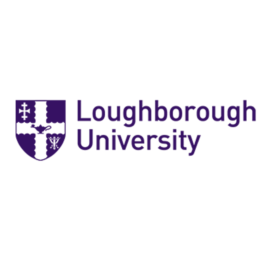
PhD-Integrable differential-difference equations: the symmetry approach
PhD @Loughborough University posted 5 months ago in Mathematics Shortlist Email JobJob Detail
-
Experience No Preference
-
Qualifications Master’s
Job Description
Project details
The focus of this project is on integrable differential-difference or semi-discrete systems. Systems of this type are central in the theory of integrable systems bridging between PDEs and the partial difference equations. Integrable differential-difference equations are Bäcklund transformations of PDEs and generators of continuous symmetries for integrable discrete systems.
These systems occur as integrable discretisations of PDEs. The main problem of this project will be the classification of integrable multicomponent differential-difference equations. The main tool to perform this study will be the symmetry approach [1,2].
The contemporary problems in quantum theory, statistical mechanics and non-commutative geometry are naturally linked with integrable systems on free associative algebras, which can be regarded as further generalisation and “abstraction” of matrix systems. Recently, the symmetry approach has been extended to such systems – integrable differential-difference systems on free associative algebras. The second aim of the project will be the classification of integrable multicomponent differential-difference equations on free associative algebras.
The project will require basic knowledge of differential equations as well as familiarity with symbolic computations (Mathematica/Maple).
[1] Alexander Mikhailov, Vladimir Novikov, Jing Ping Wang, Perturbative Symmetry Approach for Differential–Difference Equations, Communications in Mathematical Physics, 393, 2, 1063-1104 (2022)
[2] Vladimir Novikov, Jing Ping Wang, Integrability of Nonabelian Differential–Difference Equations: The Symmetry Approach, Communications in Mathematical Physics, 406, 1, 1-38 (2025).
94% of Loughborough’s research impact is rated world-leading or internationally excellent. REF 2021
Supervisors
Primary supervisor: Vladimir Novikov
Entry requirements
Our entry requirements are listed using standard UK undergraduate degree classifications i.e. first-class honours, upper second-class honours and lower second-class honours.
Entry requirements for United Kingdom
Students are expected to have an 2.1 class honours degree in mathematics.
English language requirements
Applicants must meet the minimum English language requirements. Further details are available on the International website.
Applicants must meet the minimum English language requirements. Further details are available on the International website.
Fees and funding
Tuition fees for 2025-26 entry
UK fee
£5,006 Full-time degree per annum
International fee
£22,360 Full-time degree per annum
Fees for the 2025-26 academic year apply to projects starting in October 2025, January 2026, April 2026 and July 2026.
Tuition fees cover the cost of your teaching, assessment and operating University facilities such as the library, IT equipment and other support services. University fees and charges can be paid in advance and there are several methods of payment, including online payments and payment by instalment. Fees are reviewed annually and are likely to increase to take into account inflationary pressures.
How to apply
All applications should be made online. Under programme name, select Mathematical Sciences. Please quote the advertised reference number: MA/VN – SF1/2025 in your application.
To avoid delays in processing your application, please ensure that you submit a CV and the minimum supporting documents.
The following selection criteria will be used by academic schools to help them make a decision on your application. Please note that this criteria is used for both funded and self-funded projects.
Please note, applications for this project are considered on an ongoing basis once submitted and the project may be withdrawn prior to the application deadline, if a suitable candidate is chosen for the project.

